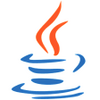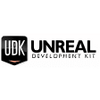
 Java Development Kit Everything you need to compile and run Java apps
Java Development Kit Everything you need to compile and run Java apps
The Java Development Kit (JDK) is the collection of core programs, libraries and application programming interfaces (APIs) that are required in order to write and compile programs in the Java language. The JDK comes in three varieties. The first is the standard edition that is designed for small businesses and individuals. The second version is the enterprise edition that is adds extra security and other libraries that make database access, server programming and ecommerce programming easier. The newest version is the micro edition that is stripped down so that Java programs can be run under a minimal environment on a mobile device.
The JDK contains a series of different files and applications that can be used by developers to compile and deploy standalone Java applications and web-based applets. There are no real interactive applications included in the JDK so that programmers who want to use the compilers without any additional assistance will have to do so from the command line. The JDK is really designed to provide accessible functionality for an external integrated development environment (IDE) that gives the user a graphical user interface (GUI) for the programming tools.
The JDK includes a compiler that turns human readable source files into bytecode objects that can be executed. It includes an application that runs web-based objects without requiring the use of a browser for testing purposes. A debugger, javadoc compiler and disassembler are also included. The Java runtime environment (JRE) is bundled with all of the development tools so downloading the JRE separately is not necessary. The JDK does not include several components of a development environment such as API documentation and source files for the standard libraries although these can be downloaded separately as needed.
Top programs in Development software
Cisco Packet Tracer
Cisco Packet Tracer
A full-fledged network simulation software from Cisco



